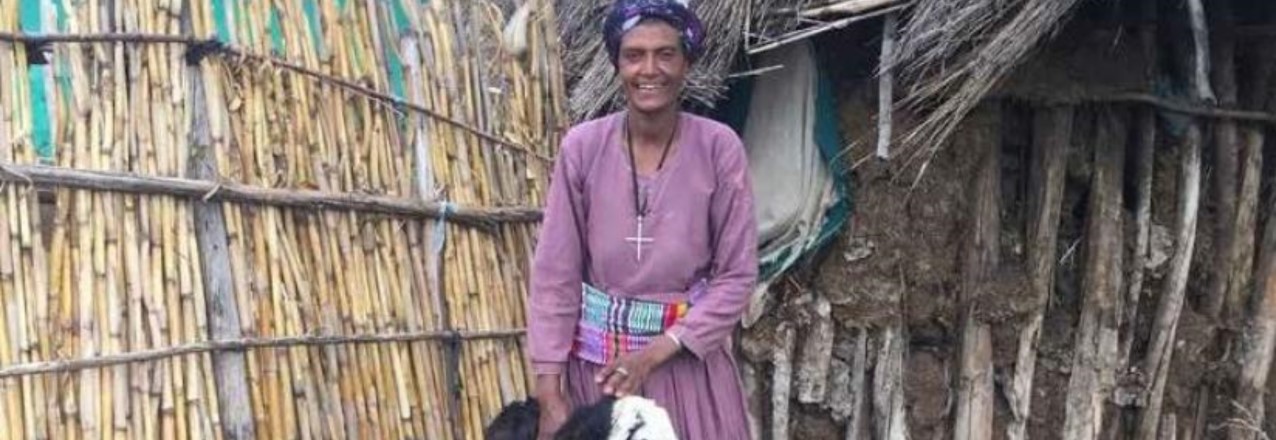Originally appeared on Agrilinks.
Despite impressive growth rates over the last couple of years, Ethiopia is still a country experiencing widespread poverty, especially in its rural areas. The Land Investment for Transformation (LIFT) program aims to reach the most vulnerable members of Ethiopian society by improving the incomes of the rural poor through improved land tenure security, second-level land certification and complementary market systems interventions.
LIFT is a £68.2 million six-year project financed by the Department of International Development (UK) and operates in Ethiopia’s four highland regional states (Amhara, Oromia, SNNPR and Tigray). The program is being implemented by DAI in consortium with Nathan, NIRAS and GIRDC. Nathan is executing the market systems component of the initiative to leverage the impact of the Second Level Land Certificates and the Rural Land Administration System; creating economic opportunities for landholders.
This is important because while security of tenure is a precondition for farm investments that improve productivity and increase incomes over time, these gains are not always significant or immediately apparent. There are numerous factors that can hinder the ability of rural farmers to gain the full benefits of land certification and security of tenure. These include a lack of formal processes for land rental; limited access to finance; and insufficient access to input (such as seeds, fertilizers, irrigation machinery, etc.) and output markets (where they can sell their produce). This is why there is a strong need for complementary interventions that encourage increased investment.
Nathan has developed specific interventions in three core markets: Access to Finance, Rural Land Rental and Environmentally Sustainable Agriculture. These three markets were identified as the best interventions to deliver the greatest possible outcomes to reach the most vulnerable sectors of Ethiopian society.
Within Access to Finance, for example, Nathan has designed an innovative loan product that enables landholders to take out an individual loan against the future produce of their land. As long as the applicants have viable business plans and access to labor to cultivate their land, they are able to access the product. This opens a new window of opportunity for individual farmers to be able to gain access to larger loan sizes on terms adapted to suit the individual’s needs.
This new financial product is reaching those often marginalized in Ethiopian society, such as women running households (widows or divorcees) and people with disabilities. In the past, these vulnerable groups were often rejected by group loan members for fear of defaulting on their loan(s). LIFT is currently working with seven microfinance institutions (MFIs) that have disbursed approximately £3.2 million in loanable funds to 4,300 clients, 34 percent of them being women.
A widow who is also a client of the access to finance loan product in the Amhara region of Ethiopia commented: “This loan product has changed everything for us women. Men will always get access to money somehow, but we had no chance to get access to finance before this product.”
In the Rural Land Rental market, Nathan has developed interventions that work primarily on formalizing land rental transactions by introducing a standardized land rental contract. This means that for the first time, due to the acceptance of the contract format as a legally binding document, rural land rental agreements can be registered by the relevant authorities and the rights of all parties involved are fully protected.
Nathan is also building the capacity of nominated members in the community around the rights and obligations of each party in a land rental transaction. These community members now support the use of the contract format but also provide information about available land for rent and match them with interested customers. This has particularly benefited those on the fringes of society. Previously the most vulnerable, including women, would only rent their land to close relatives because of fear of losing their land, but now with the contract format in place, they will consider renting their land to the highest, most favorable bidder.
In the third core market, Environmentally Sustainable Agriculture, Nathan works with suppliers of environmentally sustainable inputs (bio-fertilizer, bio-pesticides, improved seed varieties and irrigation equipment) to create a distribution network in rural areas, which enables farmers to access these products at their nearest woreda (district). Furthermore, distributors are training farmers on how to use these products to ensure the greatest gain from their land.
LIFT is now in its third year of implementation and is already recording key successes. It is evident that land tenure programs are becoming more sustainable and can have great impact on economic growth if complementary interventions, with a market systems approach, are built into the programming and monitored every step of the way.


